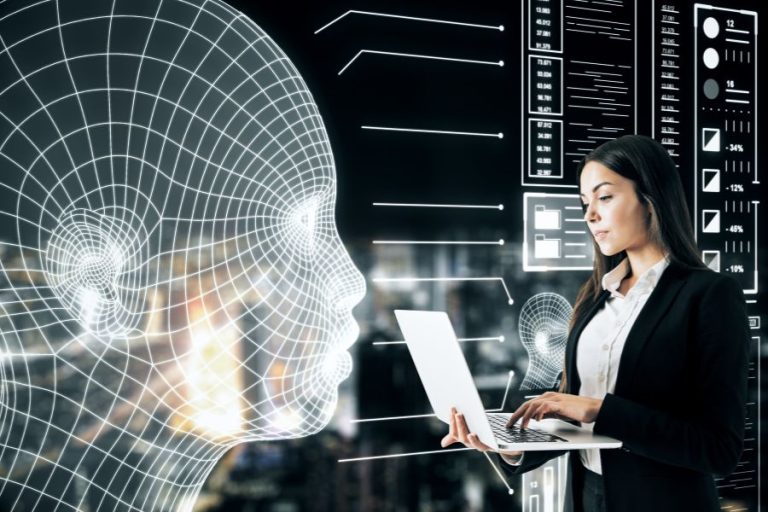The trend of the digital age has fundamentally changed how organizations function, particularly in terms of hiring practices. Notably, a lot of companies now use artificial intelligence (AI) as a major recruiting tool. According to recent surveys, a significant 15% of organizations are expected to let AI choose or reject human candidates by 2024.
Table of Contents
AI’s Stealthy Infiltration of the Hiring Process
It’s interesting to note that hiring processes are increasingly using AI. By 2024, almost 40% of businesses anticipate using AI for candidate interviews; an even more startling 15% anticipate using AI exclusively for hiring choices.
Although AI-driven hiring procedures are efficient and cost-effective, they have presented a number of difficulties. Most significantly, there are ongoing worries about AI’s ability to displace human workers in several fields, including hiring.
The Fears: AI Replacing Human Employment
One common topic in the conversation regarding AI’s future in the workplace is the fear that it will replace human workers. AI is being used by businesses to automate repetitive processes like creating job descriptions and reviewing resumes, freeing up time for more strategic endeavors.
Nonetheless, there have been concerns about the use of AI systems to evaluate applicants’ qualifications and provide suggestions to hiring supervisors. Prospective workers could experience unease and miss the interpersonal communication they anticipate from interviews.
Additionally, since AI-generated application materials sometimes lack personalization, employers may grow wary of them. Employing strategies like altering the text size or pasting job descriptions onto their resumes, job seekers frequently attempt to fool AI systems. Because of this, companies now see AI-generated application materials with skepticism and frequently favor in-person interviews as the main method of vetting candidates.
The Effect on Excluded Groups
Concerns have been expressed concerning AI’s possible effects on marginalized groups, especially those with precarious employment, when it comes to recruitment. AI programs such as ‘Final Round AI’ assist candidates in video interviews by providing them with real-time cues drawn from submitted resumes and cover letters. Unfair employment practices could result from these algorithms, though, as they could amplify inherent biases seen in historical data.
Initiatives to lessen bias in AI systems have been prompted by evidence of racial bias in employment practices. AI may have a disproportionately negative impact on early-stage or low-level job seekers, which could exacerbate the hiring gap.
Automated recruiting practices could affect underprivileged workers with unstable employment. Some firms have expressed concerns about the fairness and accuracy of using personality tests and assessments in hiring processes.
High-level corporate roles are unlikely to be affected by AI-driven hiring practices because networking usually plays a big role. The use of AI in hiring processes raises questions about the future of employment and job security.
As the use of AI-driven recruiting grows, there is a constant need to guarantee equitable hiring procedures and lessen bias in AI algorithms. AI is having an impact on job searchers in general as well as employment laws and practices in a broader sense.
Public Attitude Toward AI in Hiring
There is divergent public opinion regarding the usage of AI in hiring. Some fear it will replace human decision-making and reinforce prejudices, while others view it as a helpful tool for boosting productivity and lowering subjectivity.
It’s interesting to note that most people are against companies use AI to make final hiring decisions. There is also strong hostility to the idea of using AI to determine who gets hired or promoted. However, the public is becoming increasingly receptive to the use of AI to track employees’ driving habits in order to ensure their safety.
The public is generally against the use of face recognition technology in the workplace to track employees or read their facial expressions. On the other hand, there is more acceptance for the use of technology to monitor employee attendance automatically.
AI’s Role in Hiring in the Future
Although there are obstacles associated with using AI in hiring, there are also benefits. Technology has the ability to lessen prejudices while streamlining and increasing the efficiency of the hiring process. But it’s crucial to think about the moral ramifications and make sure the technology is handled appropriately.
In conclusion, it seems likely that AI will continue to be incorporated into the hiring process. Companies need to make an effort to find a balance between making the most of AI’s advantages and making sure that recruiting procedures are just and moral. While AI may play a major role in hiring practices in the future, humans should never be entirely ignored.
For More Visit: https://paisainvests.com/



